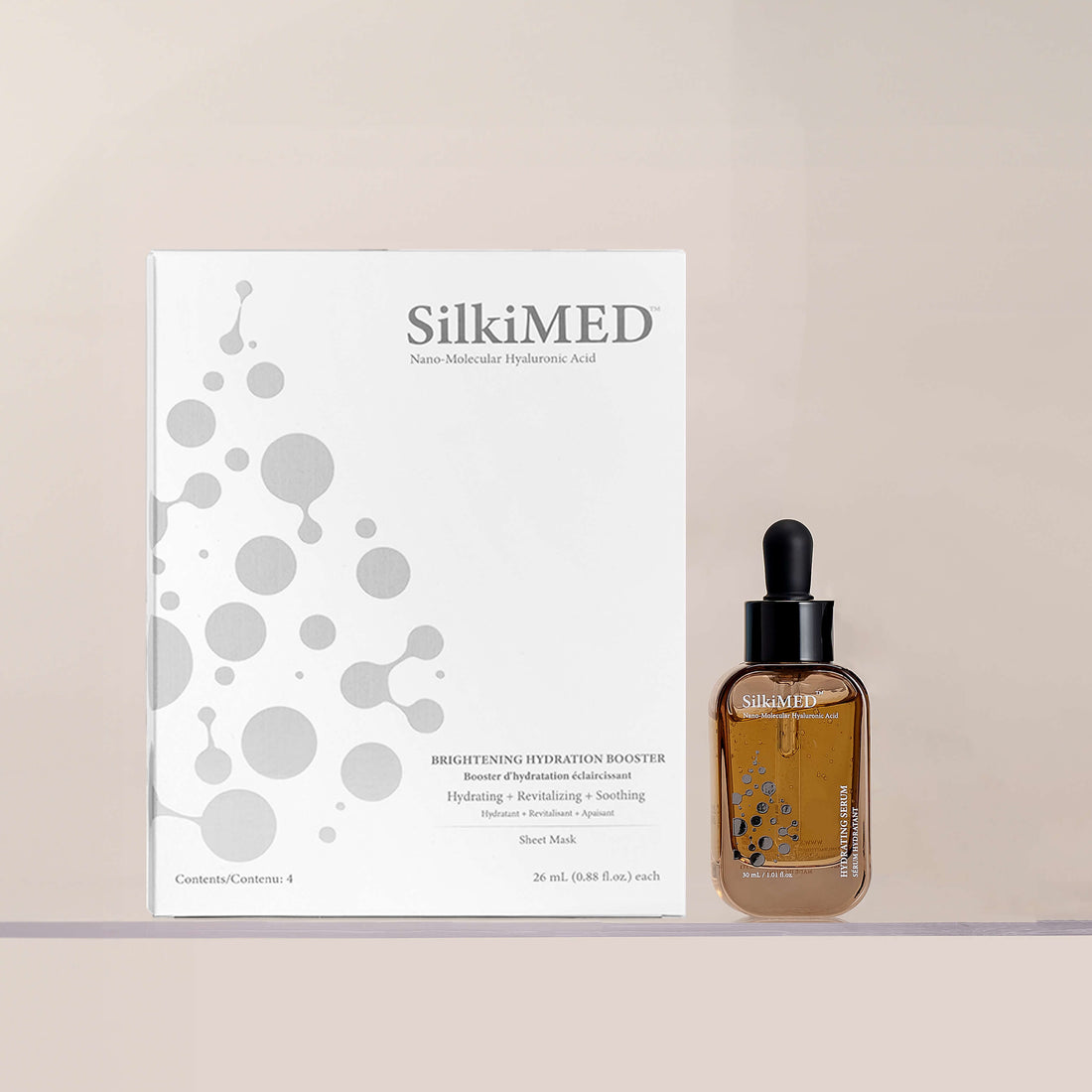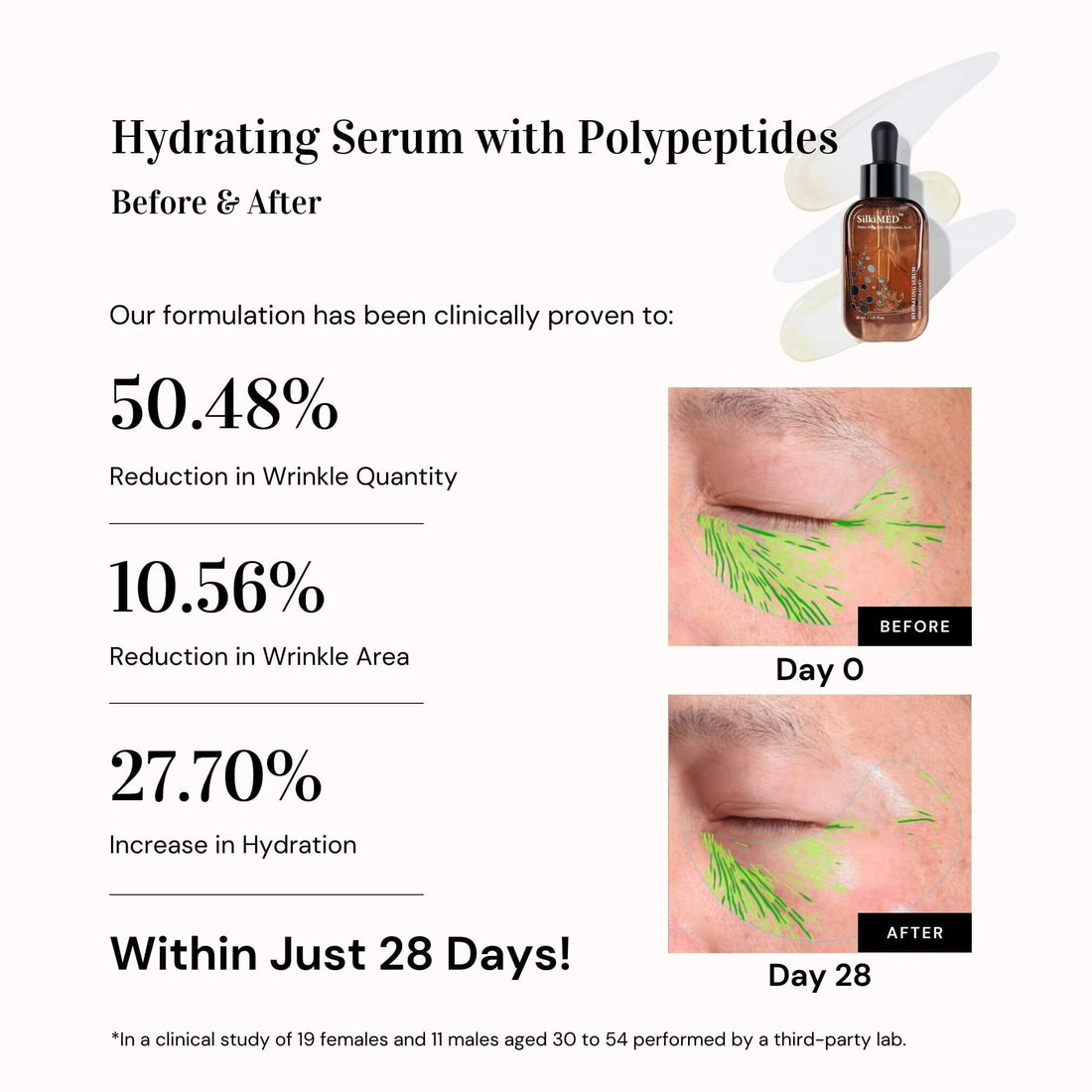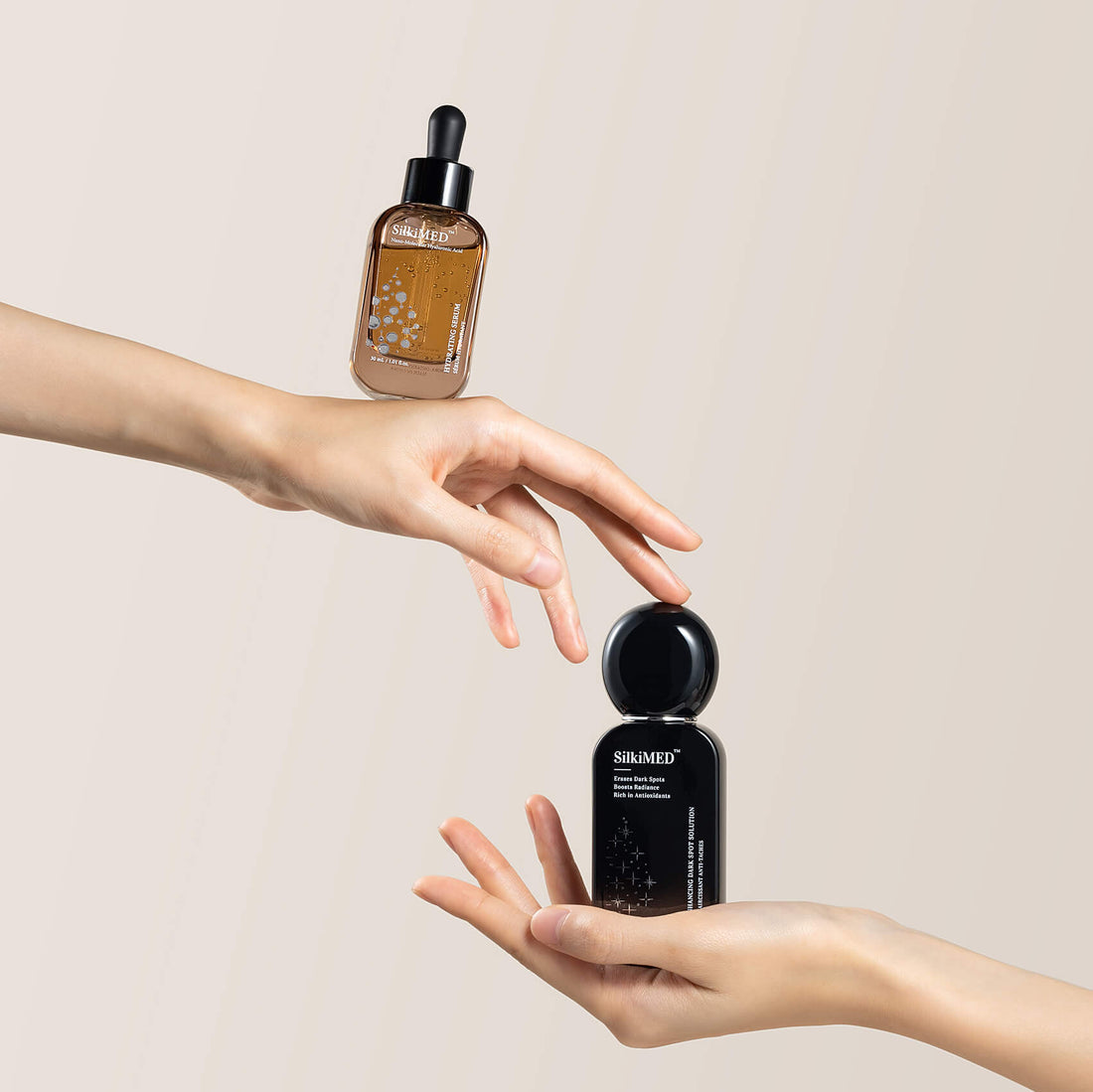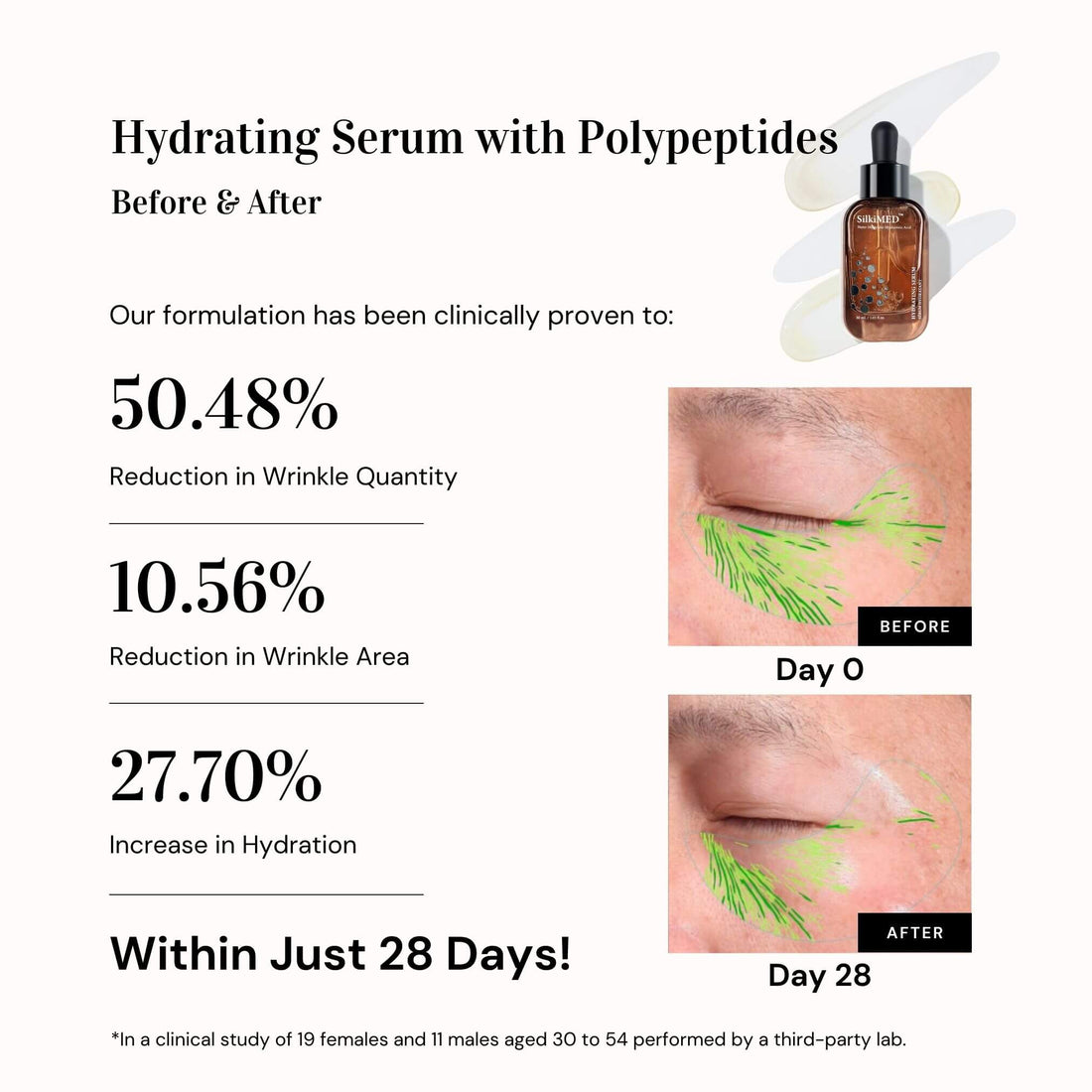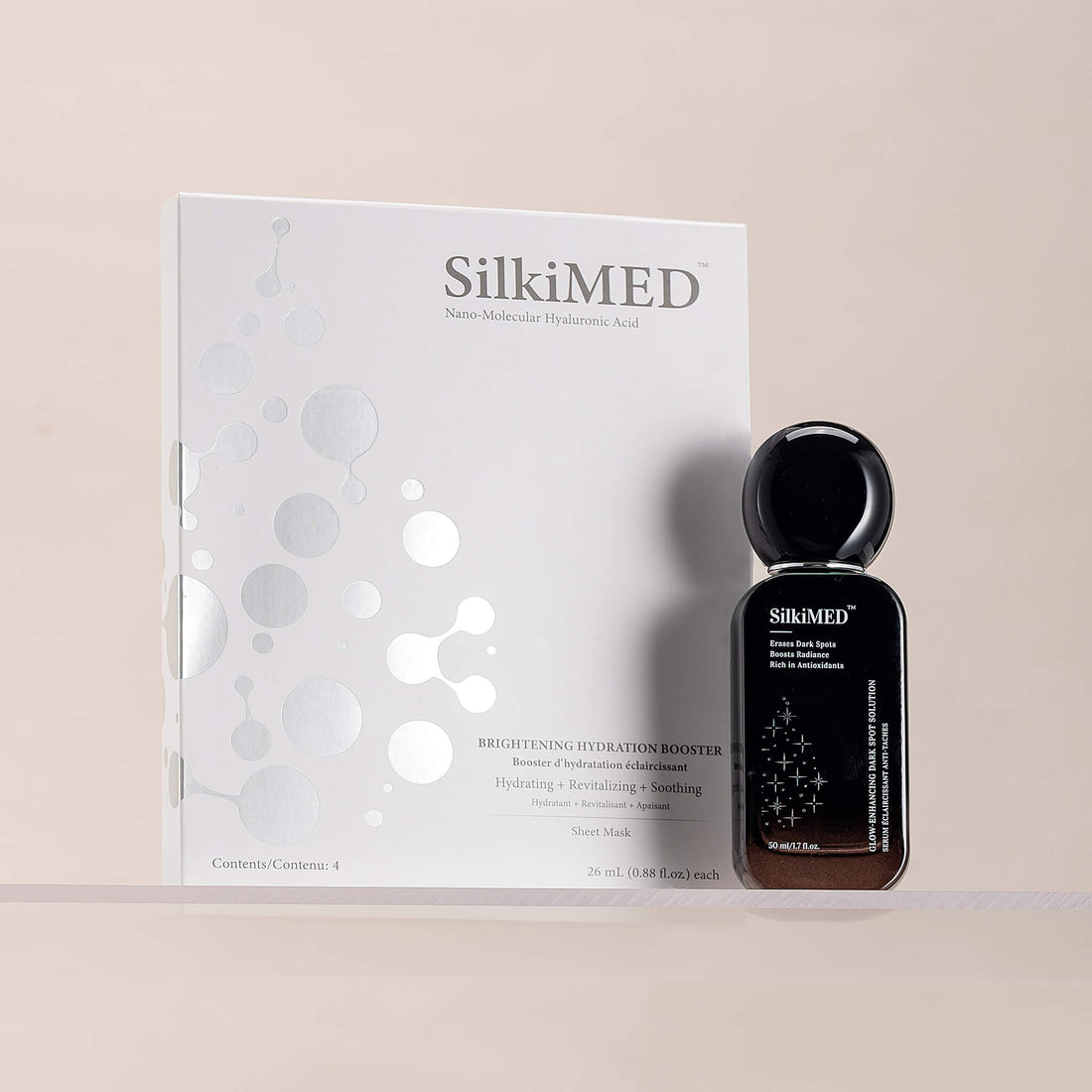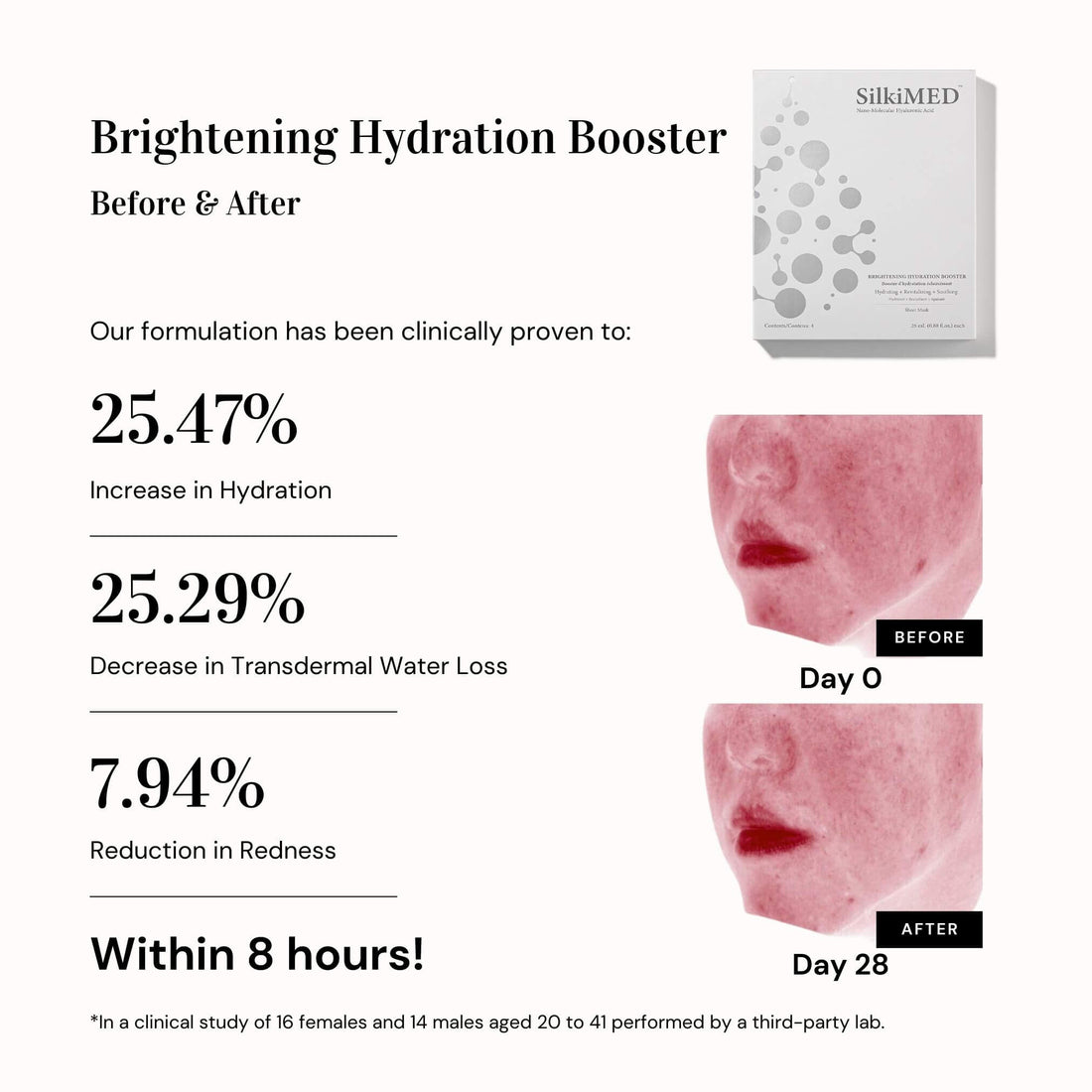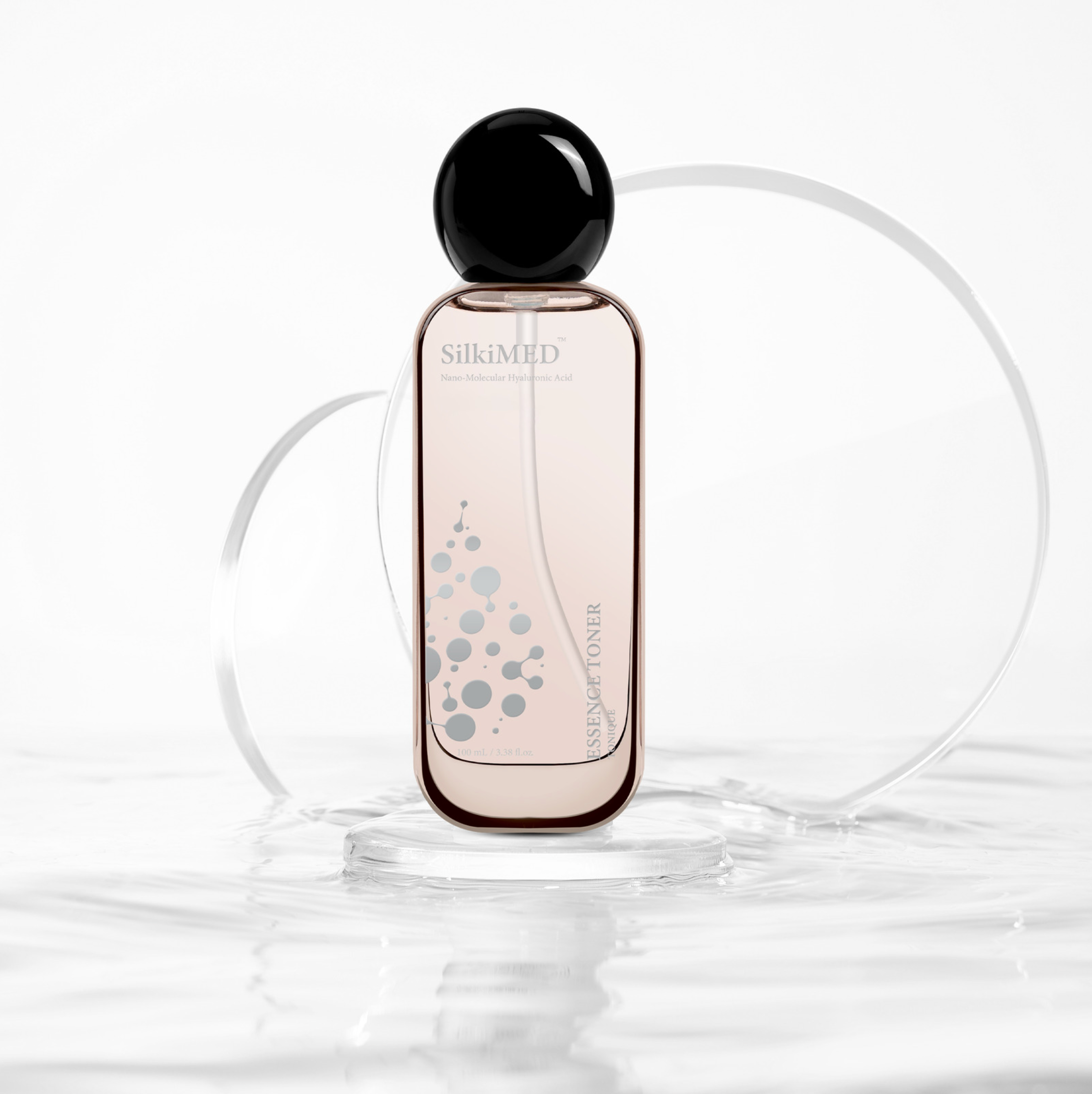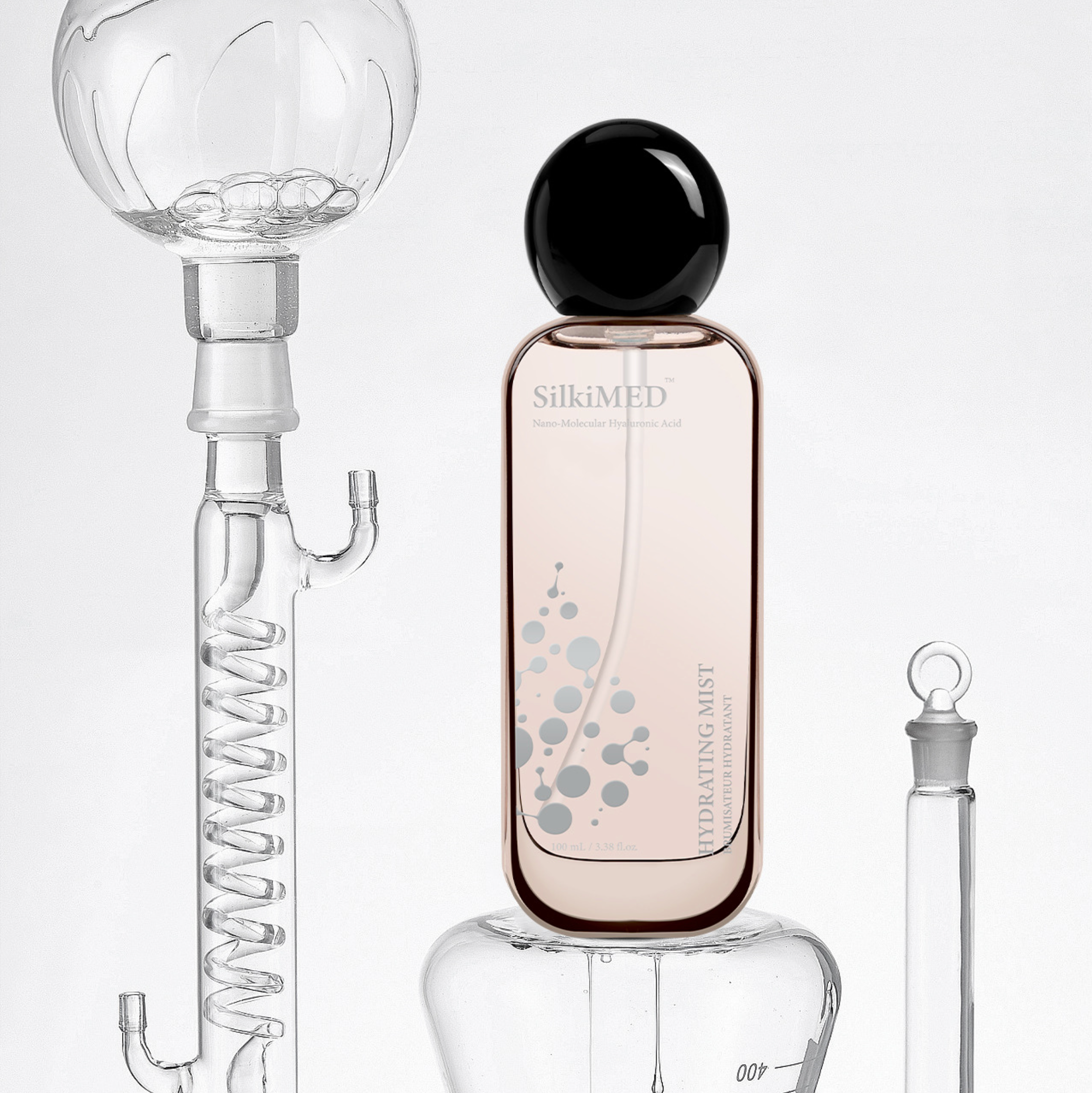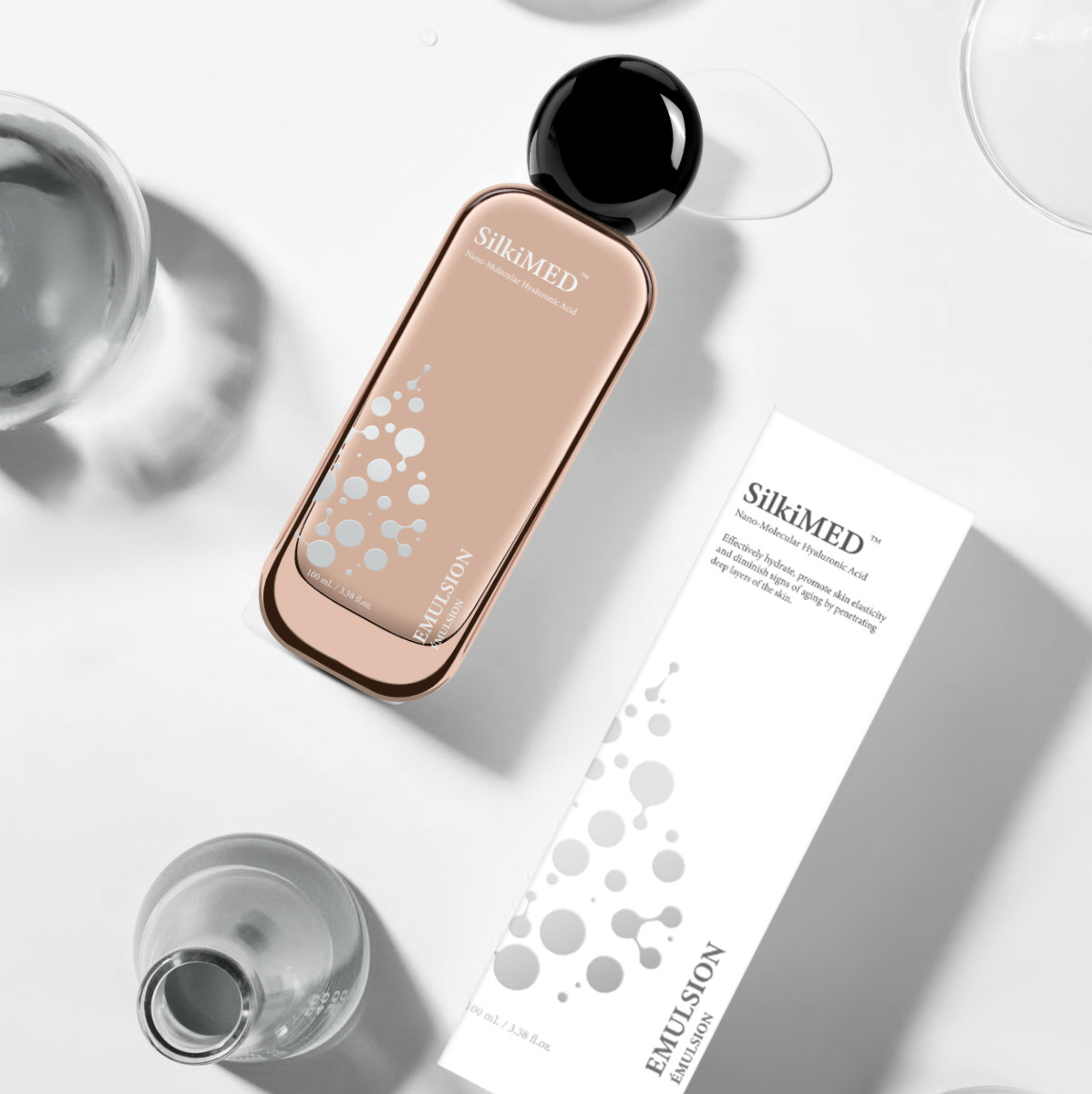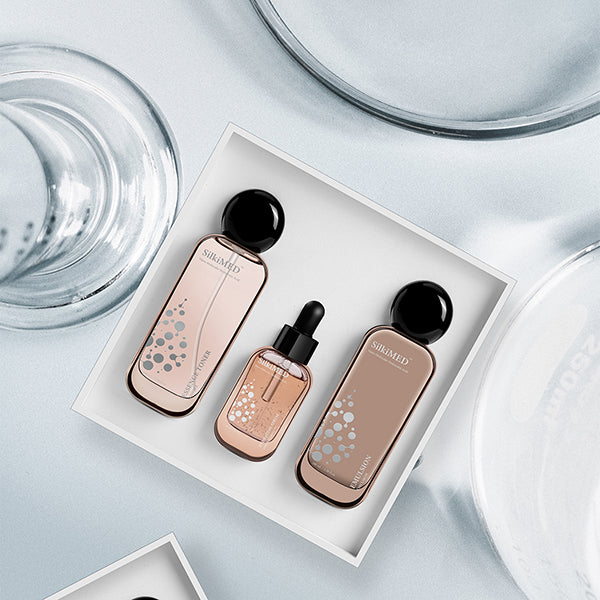8 products
-
Hydrating Serum with Polypeptides
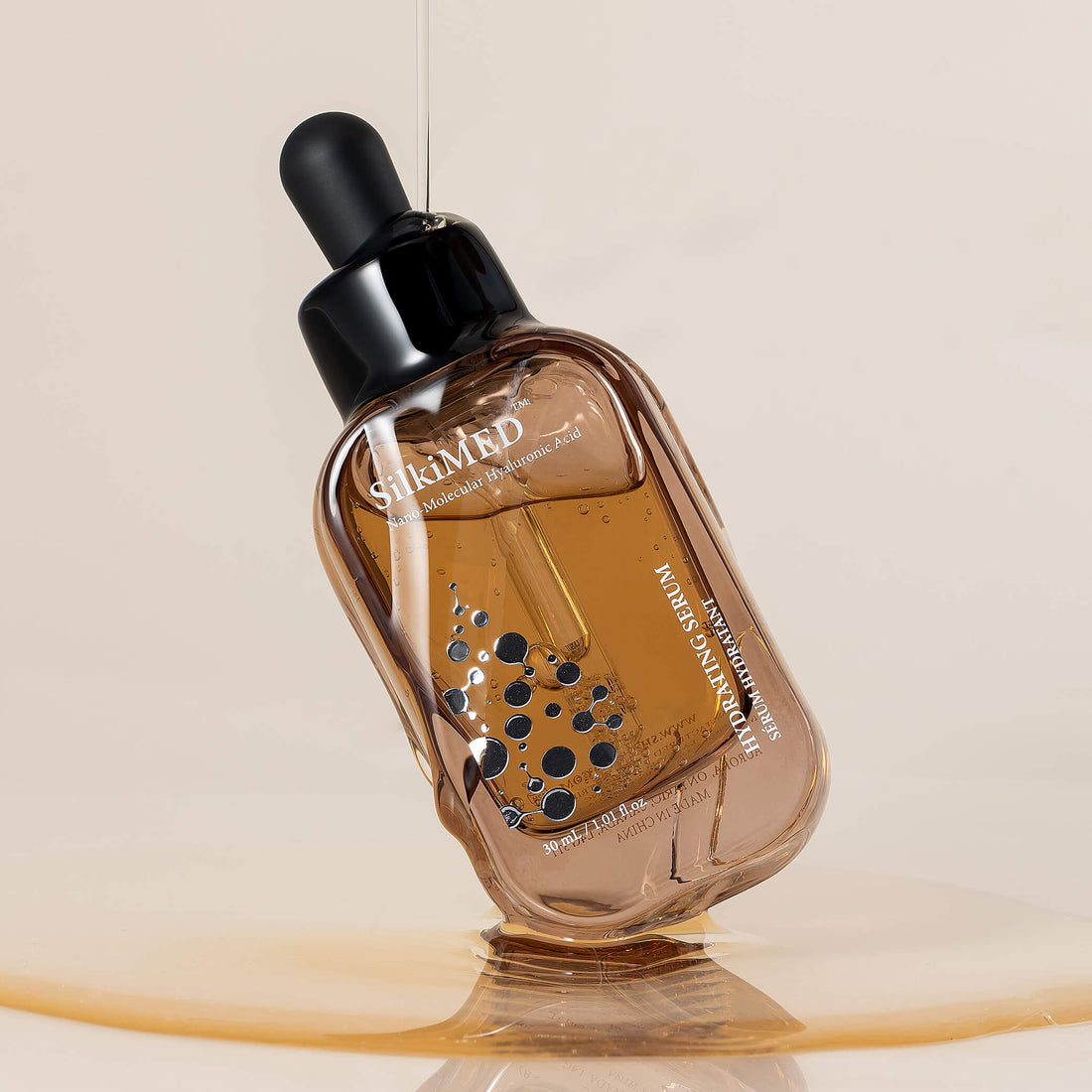
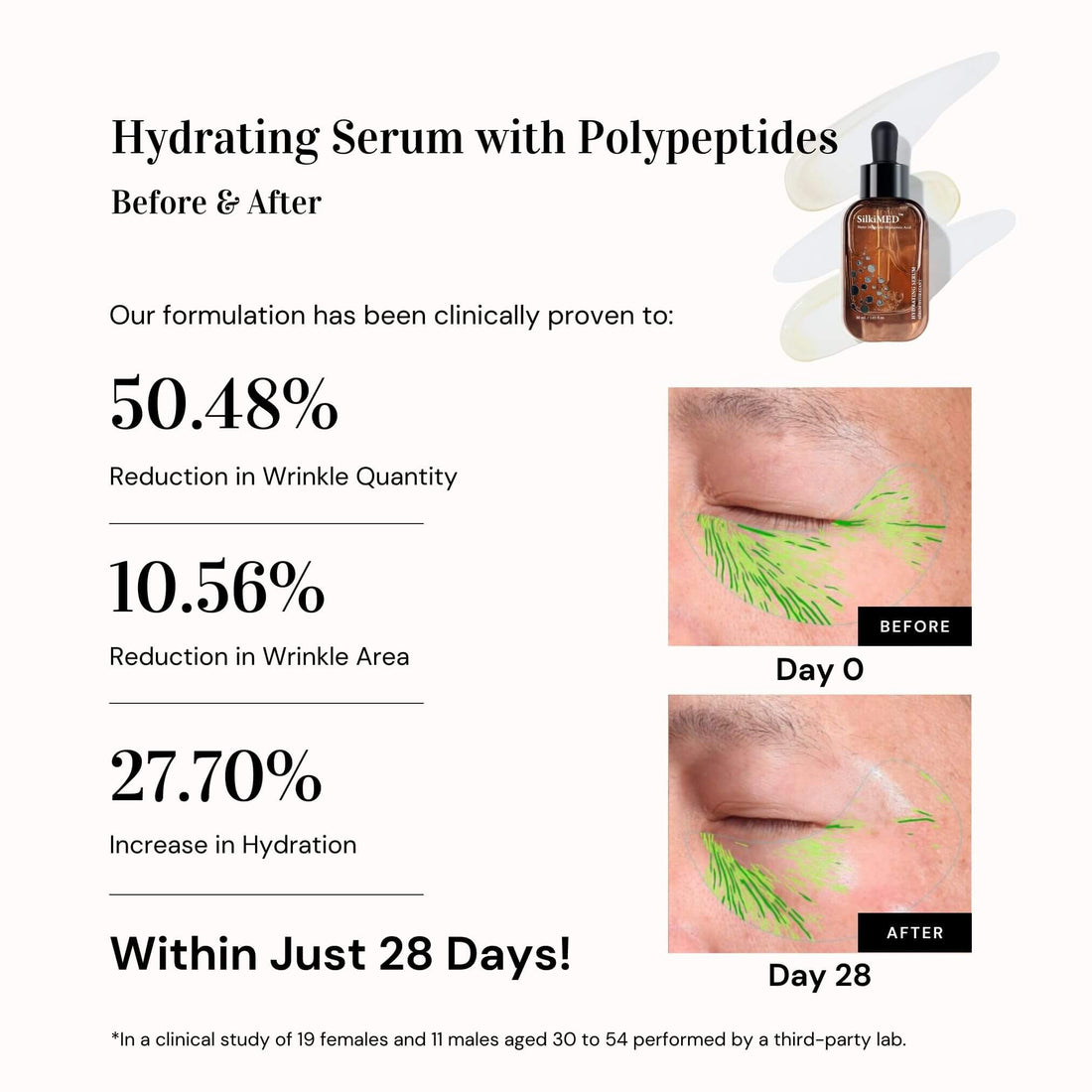 Vendor:Hydrating Serum with Polypeptidessilkimed
Vendor:Hydrating Serum with Polypeptidessilkimed- Regular price
-
$65.00 - Regular price
-
- Sale price
-
$65.00
-
Brightening Hydration Booster (4)
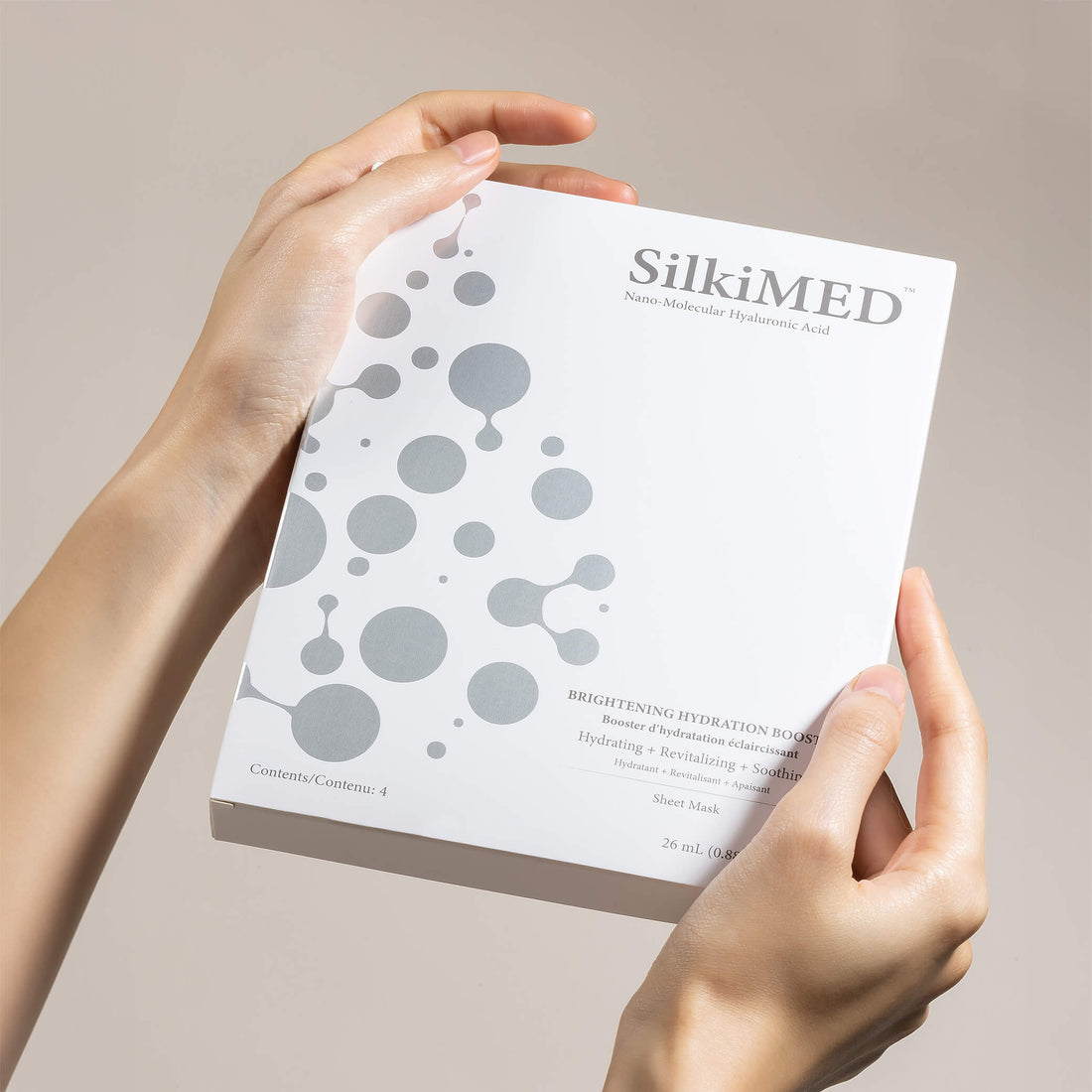
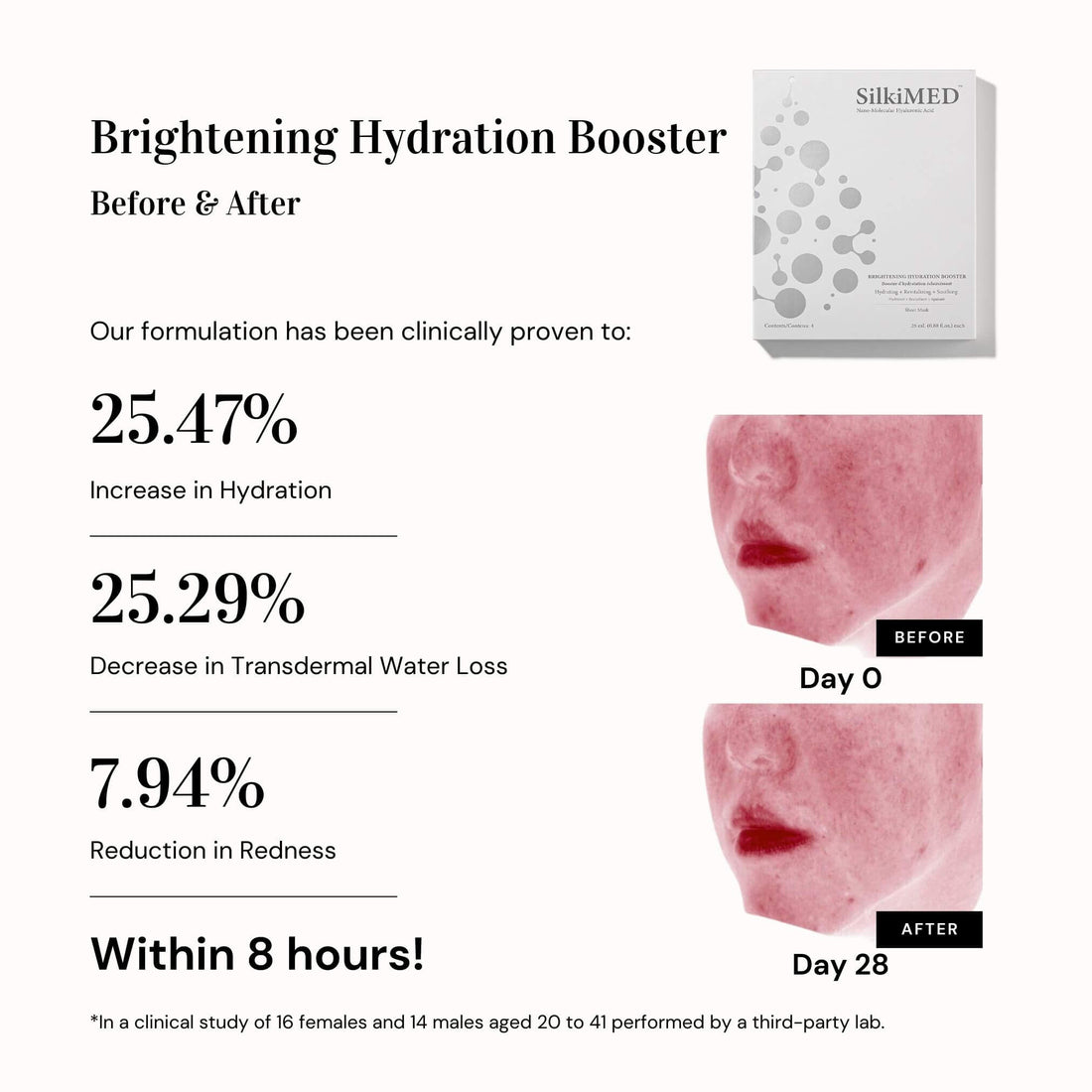 Vendor:Brightening Hydration Booster (4)silkimed
Vendor:Brightening Hydration Booster (4)silkimed- Regular price
-
$28.00 - Regular price
-
- Sale price
-
$28.00
-
OHA Comprehensive Set
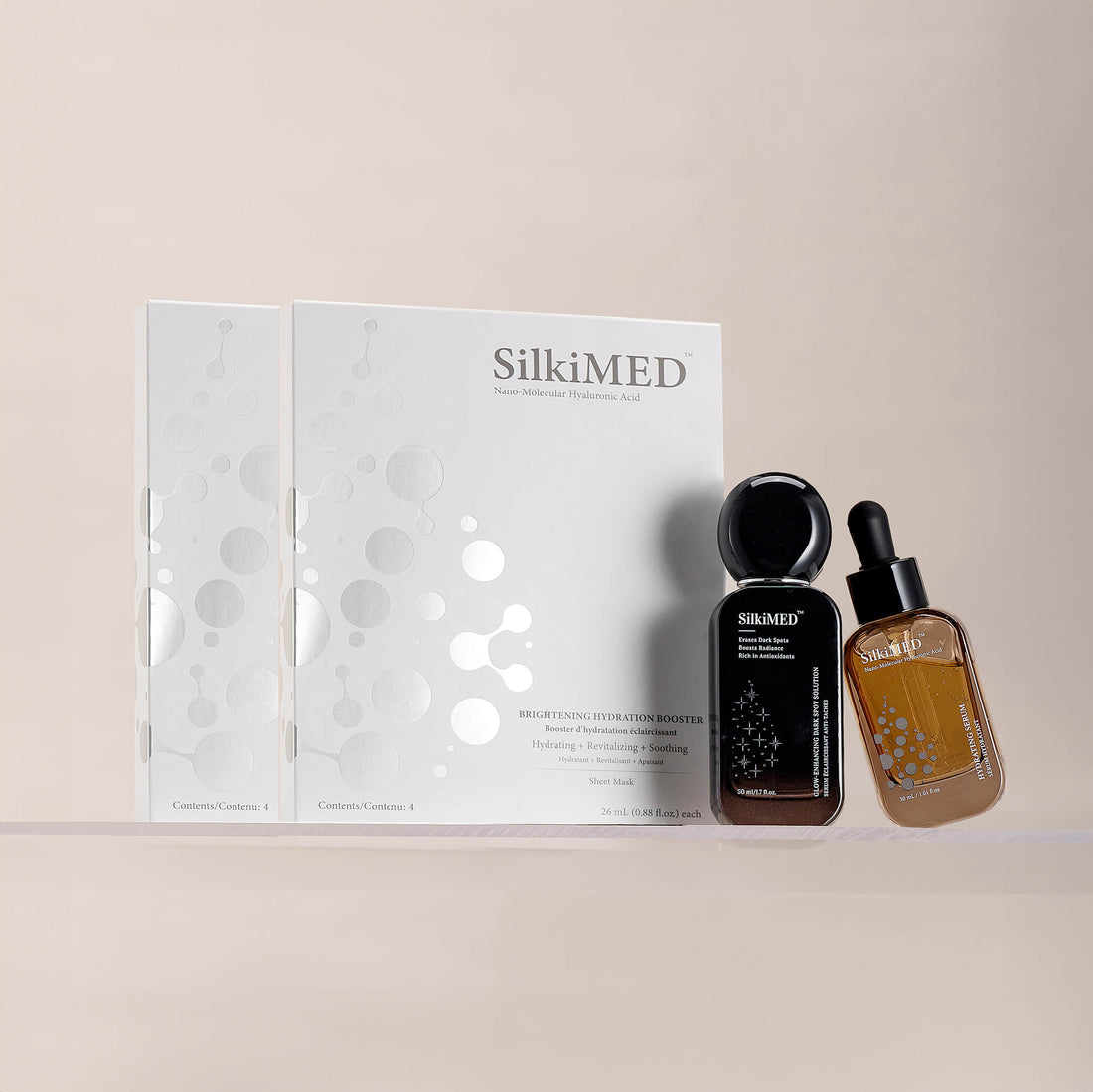
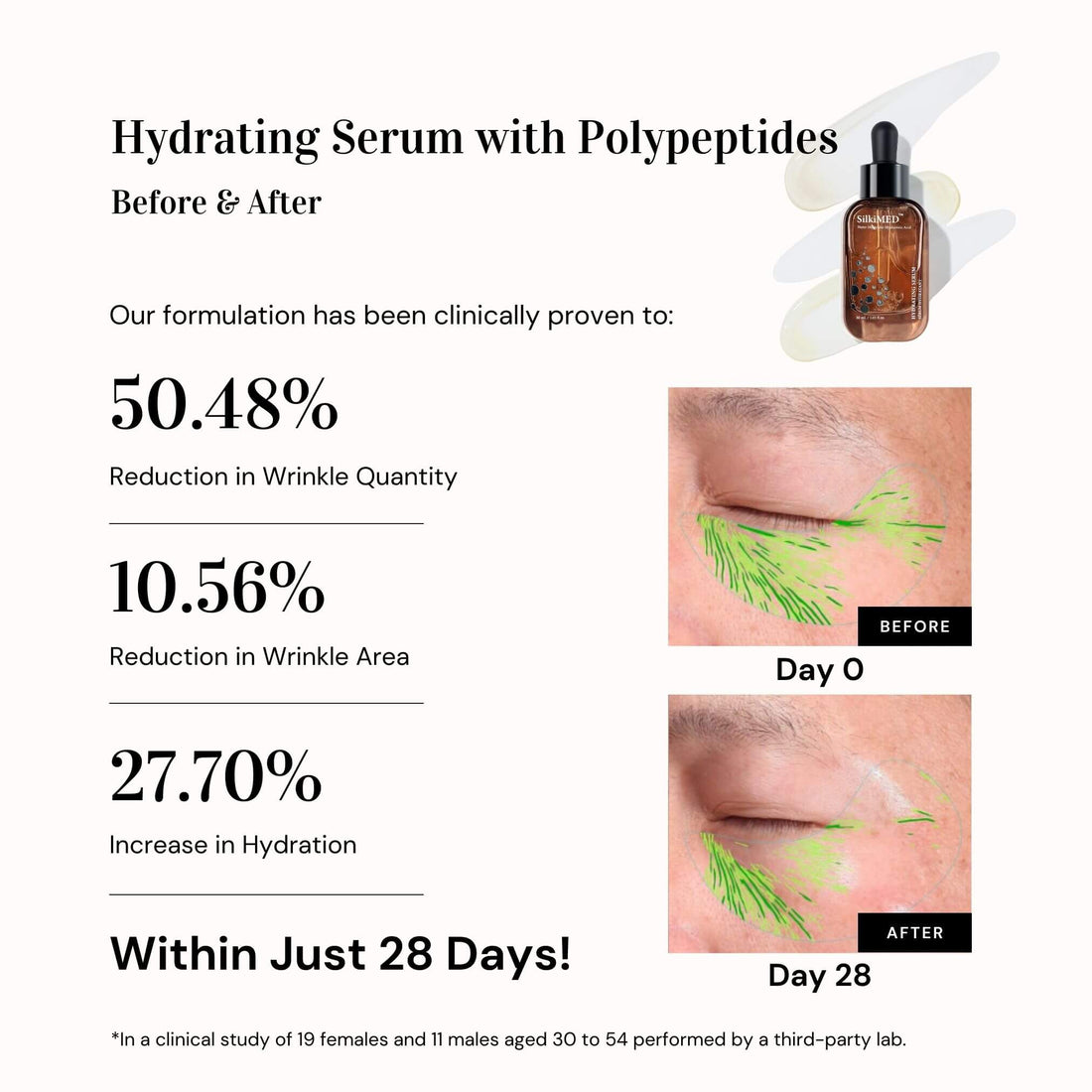 Vendor:OHA Comprehensive Setsilkimed
Vendor:OHA Comprehensive Setsilkimed- Regular price
-
$135.99 - Regular price
-
$195.50 - Sale price
-
$135.99
-
Glow-Enhancing Dark Spot Solution
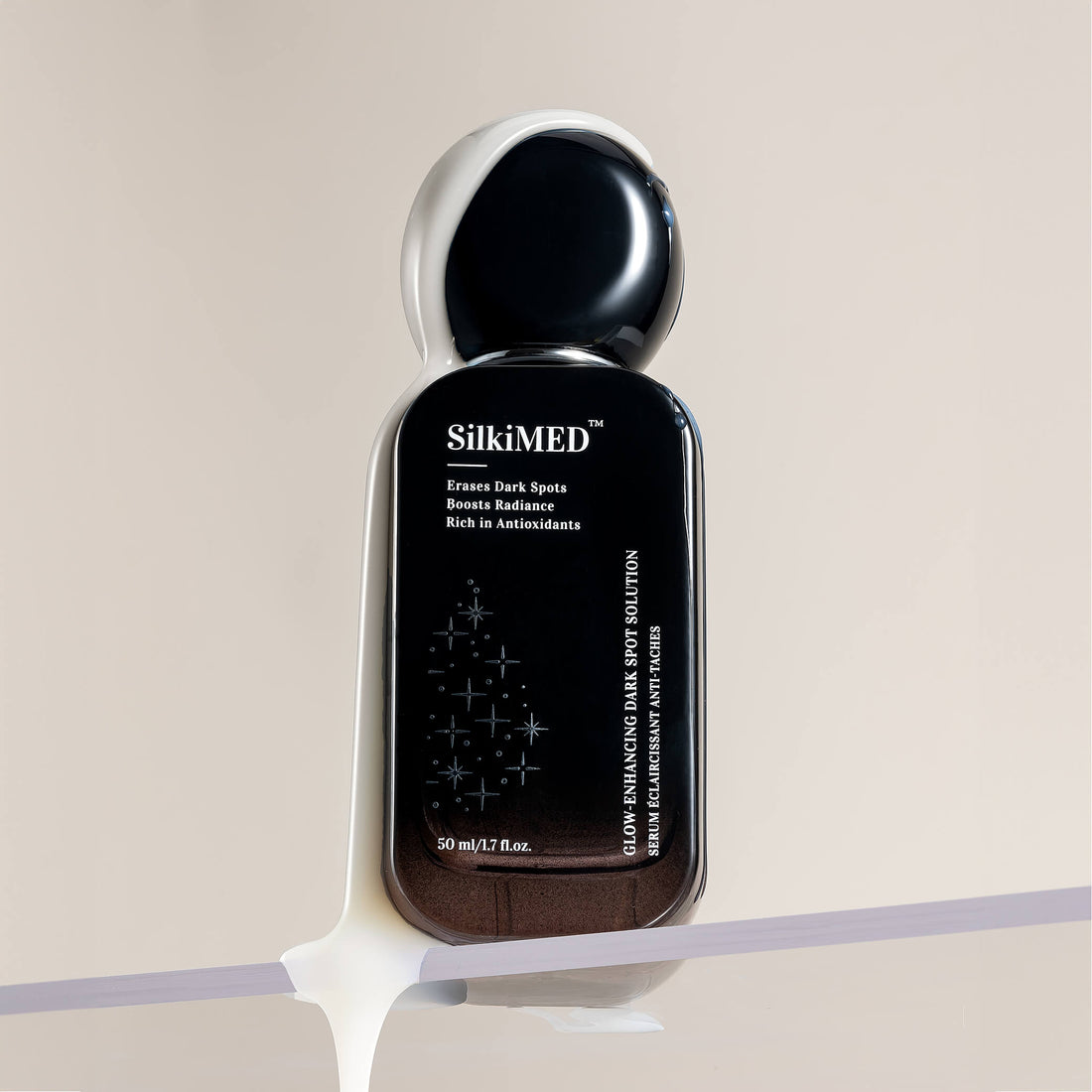
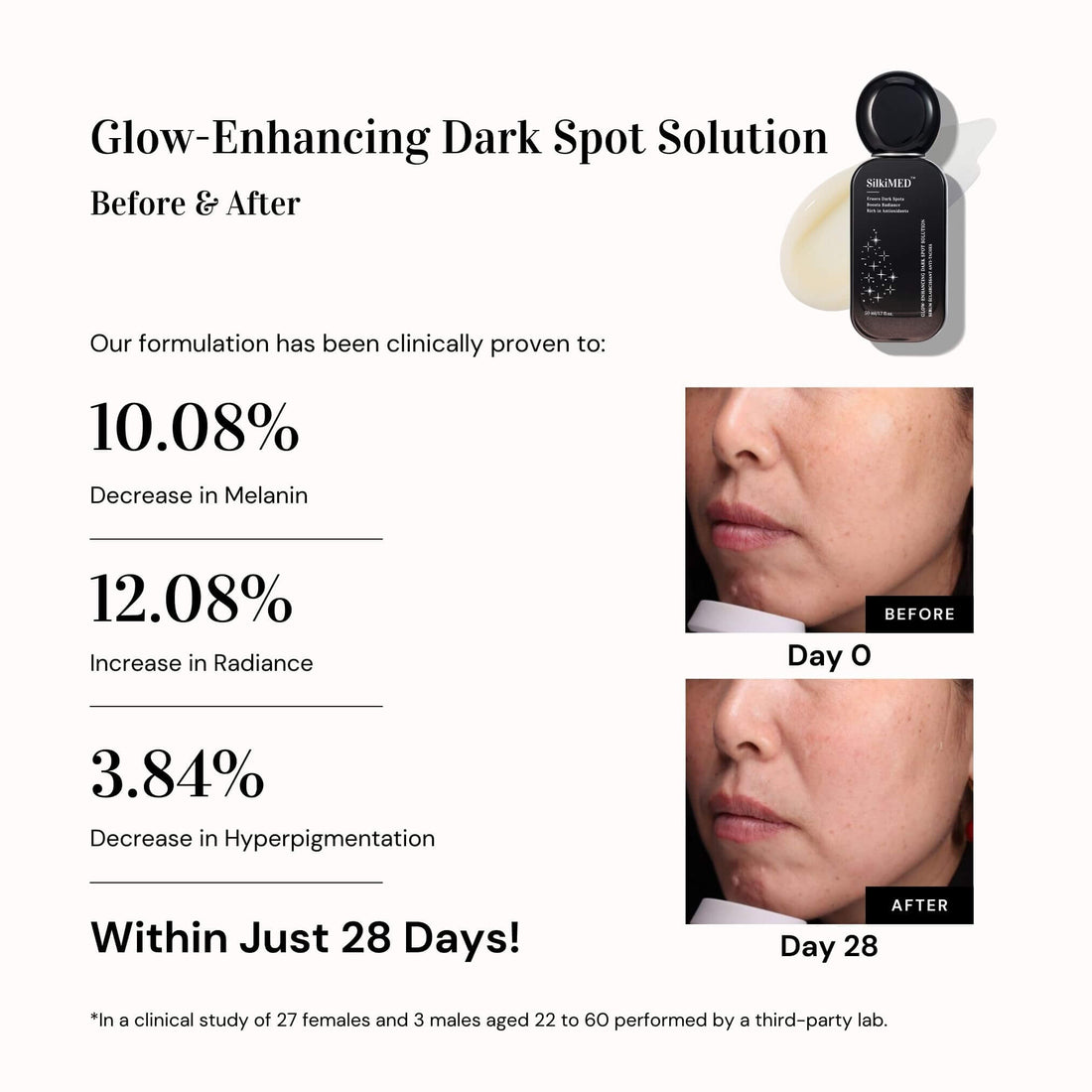 Vendor:Glow-Enhancing Dark Spot Solutionsilkimed
Vendor:Glow-Enhancing Dark Spot Solutionsilkimed- Regular price
-
$74.50 - Regular price
-
- Sale price
-
$74.50
-
Brightening Hydration Booster (1)

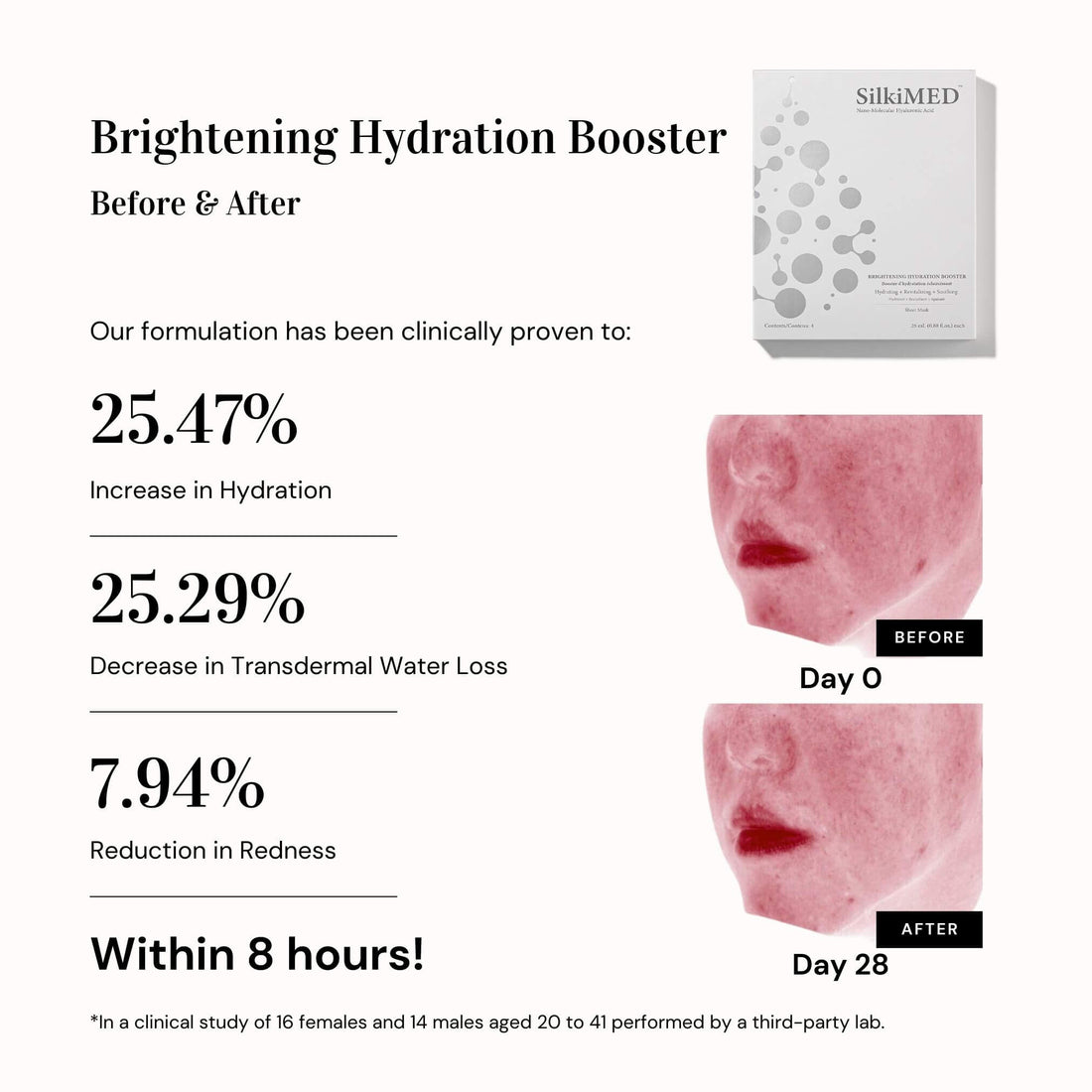 Vendor:Brightening Hydration Booster (1)silkimed
Vendor:Brightening Hydration Booster (1)silkimed- Regular price
-
$9.00 - Regular price
-
- Sale price
-
$9.00
Coming Soon
A Dermatologist's Guide to Post Sun Skincare
Sun care is an essential aspect of skincare that often gets overlooked. While we all enjoy soaking up the sun's rays, it's crucial to protect our skin from its harmful effects. As a dermatologist expert, we are here to provide you with a comprehensive guide to post-sun skincare.
From understanding the basics of sun care to deciphering SPF and recommending the best products, this blog post will help you take care of your skin after sun exposure.
Understanding the Basics of Sun Care
Sun care is not just about applying sunscreen; it's a holistic approach to safeguarding your skin from the detrimental effects of ultraviolet (UV) radiation. There are two primary types of UV rays that pose risks to our skin health: UVA and UVB. UVA rays, which account for the majority of our UV exposure, penetrate the skin more deeply and are a key contributor to skin aging and the development of skin cancers.
UVB rays primarily affect the outer layer of the skin, leading to sunburns and playing a significant role in the development of skin cancer. Understanding these distinctions is crucial in selecting the right type of protection for your skin.
A broad-spectrum sunscreen offers defense against both UVA and UVB rays, making it an indispensable part of your sun care routine. Incorporating such sunscreens along with other protective measures like wearing protective clothing and seeking shade during peak UV hours can significantly reduce your risk of skin damage. Protecting your skin from these harmful rays is essential for maintaining its health and preventing long-term damage.
Deciphering SPF: What Does It Mean?
SPF, or Sun Protection Factor, serves as a critical indicator of a sunscreen's efficacy against UVB rays, which are primarily responsible for sunburn and play a significant role in skin cancer risk. The numerical value of SPF can offer insight into the level of protection provided; for instance, using a sunscreen with an SPF of 30 suggests that your skin could be exposed to the sun 30 times longer than without any sunscreen before burning. However, it's essential to understand that no sunscreen can block 100% of UV rays, and reapplication is necessary, especially after swimming, sweating, or towel drying.
Choosing a product with a high SPF is beneficial, but integrating it into a comprehensive sun care routine that includes seeking shade and wearing protective clothing is equally vital for optimal skin protection. The concept of SPF applies exclusively to UVB rays, thus emphasizing the importance of selecting a broad-spectrum formulation that also guards against UVA rays, ensuring a holistic approach to sun defense.
After Sun Care: Essential Steps to Heal and Soothe
Immediately following sun exposure, initiating a regimen to alleviate and repair the skin is paramount. Initiate this process by washing the skin with a gentle cleanser to eliminate residues of sunscreen, salt, or chlorine, which can further irritate damaged skin. Following cleansing, applying a hydrating moisturizer is critical. Opt for products rich in hyaluronic acid or ceramides, which support the skin's barrier and retain moisture, thereby promoting healing.
For those experiencing sunburn, the application of aloe vera gel or a product containing calming agents such as calamine can offer immediate relief by reducing inflammation and cooling the skin. For enhanced benefits, store these products in the refrigerator; the additional cooling effect can provide extra comfort to heated, sensitive skin. Additionally, incorporating a product with antioxidants, such as vitamin E or green tea extract, can aid in neutralizing free radicals and supporting the skin’s natural repair mechanisms.
Recommended Products for Sun Care
Navigating the myriad of sun care products can be overwhelming, but certain essentials stand out for their efficacy. Broad-spectrum sunscreens are paramount, and selecting one with an SPF of 30 or higher ensures robust protection against UV radiation.
For comprehensive care, incorporate a lip balm with SPF to safeguard the delicate skin of your lips, often overlooked in sun care routines. Post-sun exposure, prioritize gentle, non-irritating cleansers to remove impurities without exacerbating skin sensitivity.
Follow up with a deeply hydrating moisturizer formulated with skin-replenishing ingredients like hyaluronic acid or ceramides to boost the skin's moisture barrier and facilitate repair. Aloe vera gel remains a tried-and-true remedy for soothing sunburnt skin, providing immediate relief and reducing inflammation. For an added layer of care, seek products infused with antioxidants such as vitamin E or green tea extract, which can counteract free radical damage and support the skin’s recovery. Incorporating these targeted products into your sun care arsenal will significantly enhance your skin's defense and repair following sun exposure, ensuring a healthy and resilient complexion.






